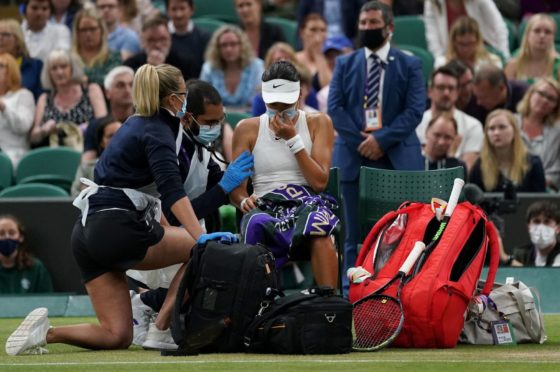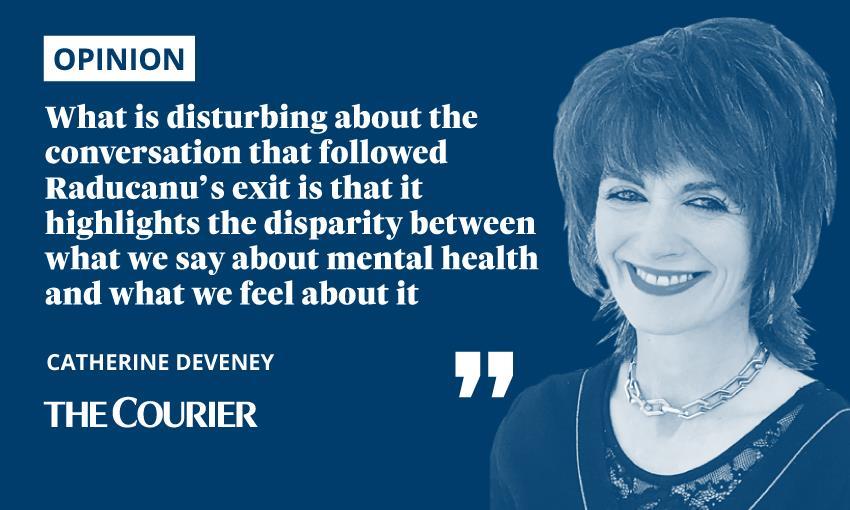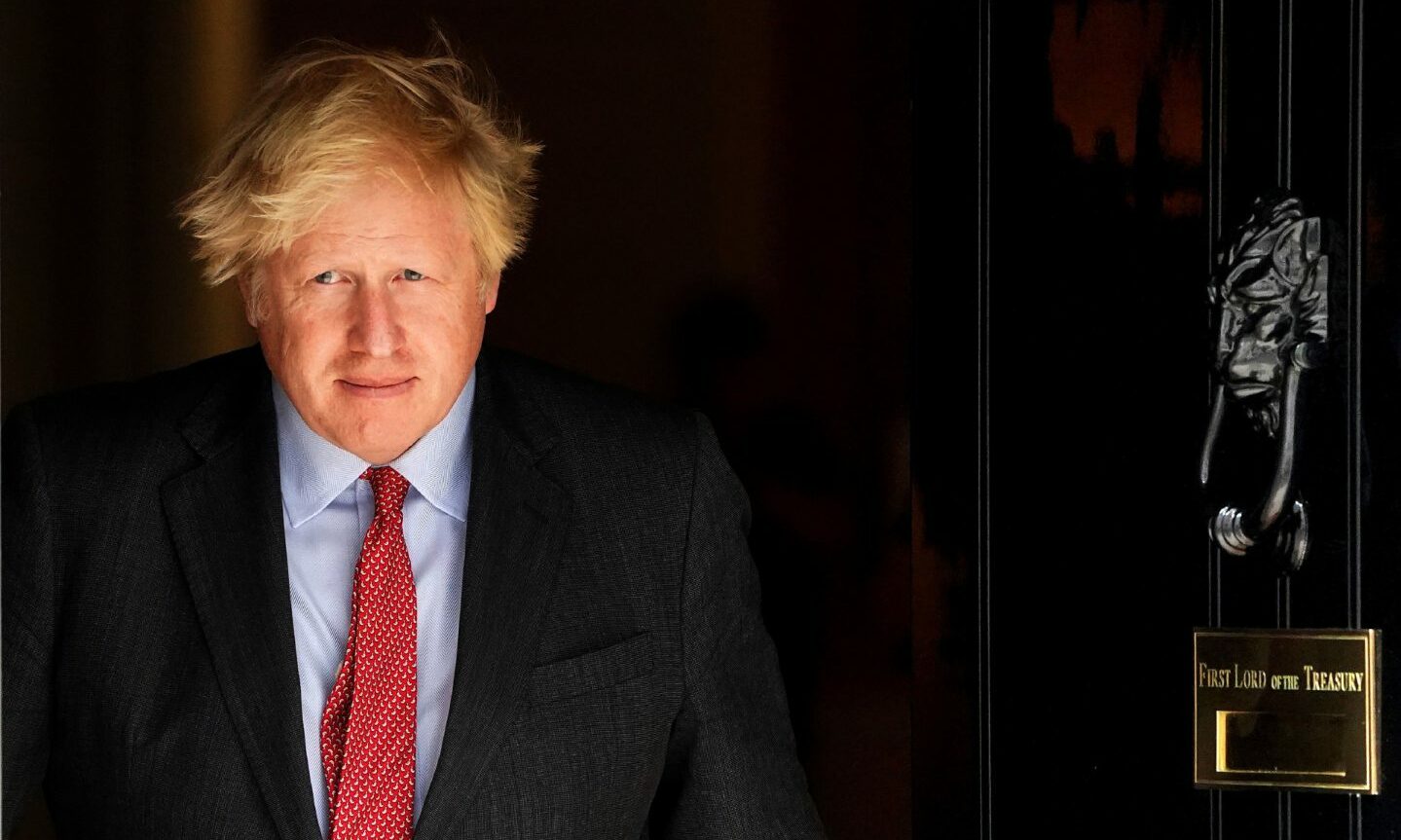I am not sure at what point the corpulent, 50-something man that is Piers Morgan ever picked up a tennis racket and played professionally, but perhaps it was around the same time he did the psychology degree that none of us ever dreamed he had.
If I turned up for therapy and found Morgan in the chair, I suspect I’d be under a bus by session two.
But how else can we account for his sudden expertise in the case of 18-year-old tennis player Emma Raducanu, who, he recommends, should “toughen up” and show proper mental resilience in moments of stress?
Like Piers did when he stormed off breakfast news because of personal criticism that was so bleeding obvious, even the weatherman had to jump in and confront him with it.
Interesting that the public discourse that followed Raducanu’s exit from Wimbledon, after she was shown hyperventilating, shaking and distressed, was conducted mainly by men.
The admirable exception was Judy Murray, who politely pointed out that perhaps middle-aged men’s limited insight into teenage girls’ wellbeing didn’t entitle them to comment.
All credit to the likes of Andy Murray, Dan Walker and Marcus Rashford who spoke in Raducanu’s defence, but where were the equivalent female voices?
It’s almost as if, when it comes to “mental toughness” and attributes associated with “masculinity”, women keep their mouths shut in case they seem like wooses.
Middle-aged men should generally avoid commenting on the physical or mental well-being of teenage girls.
They will NEVER experience or fully understand that world. pic.twitter.com/ZdWcpnsnvw— judy murray (@JudyMurray) July 6, 2021
Meanwhile, there’s a national fit of pique going on that Raducanu’s astonishing run at Wimbledon wasn’t going to end in a fairytale this weekend, akin to Boris Becker’s victory as a 17 year old. (And we all know where his bravura and mental resilience led him: into a broom cupboard with subsequent years of alimony payments.)
Raducanu was this year’s darling until, as she said, she got overwhelmed.
Loser! Jeez. Pass the Kettle Chips and another can of Tennents.
Does anyone seriously listen to Piers Morgan? Probably not.
But what is disturbing about the kind of societal conversation that followed Raducanu’s exit is that it highlights the disparity between what we say about mental health and what we feel about it.
At the sight of a shaking and distressed 18-year-old, our conversation immediately resorts to notions of winners and losers, strength and weakness
Scotland’s 10-year health strategy calls for an equalising of the approach to mental and physical health.
Public health education programmes have tried to remove the stigma and taboos surrounding mental health.
Yet, at the sight of a shaking and distressed 18-year-old, our conversation immediately resorts to notions of winners and losers, strength and weakness.
It’s a conversation we simply don’t have when an athlete exits because they pull a hamstring or strain a groin.
The lack of empathy was also illustrated in the recent furore over another young female tennis player, Naomi Osaka, who became a four-time Grand Slam winner and the highest earning female athlete in the world before she was 23.
Osaka provoked criticism when she refused to do post-match interviews at the French Open in May and was fined £15,000.
In response, she openly cited her battles with depression, said those who knew her recognised she suffered from social anxiety, and withdrew from the tournament.
Strength of a different kind
That is mental strength right there: personal truth and a refusal to conform to things that damage you.
Sadly, tennis commentators didn’t all agree.
Speaking on American television, John McEnroe said being a pro meant you signed up to certain rules.
Billie Jean King – a female voice but one accepting male convention – said professional athletes “had a responsibility” to make themselves available to the media.
Well! Who knew that the ability to hit a cross court winner at 90mph had to be matched by the verbal dexterity to charm mainly middle-aged male sports writers at the press conference afterwards?
There’s something bizarre about King’s idea of “responsibility”.
Politicians can avoid direct interrogations by the press if they want, even when it comes to important questions like the truth of Covid care home deaths.
And they usually do avoid, unless they are Dominic Cummings with a bellyful of spite to unleash.
Though he did hit a winner when he said if the government had been any good, he wouldn’t have been employed in it. Shot!
Yet, tennis players must analyse the second set break of serve? Really?
All eyes on Centre Court 👀#Wimbledon pic.twitter.com/IXHnJobgWI
— Wimbledon (@Wimbledon) July 8, 2021
This weekend, the women’s Wimbledon finals will be played. Maybe one day, if Raducanu reaches her potential, she will play in a final. But first, she needs the necessary support and understanding to develop her talent.
Time to ditch Piers Morgan Psychology Services and get real about mental health.
Catherine Deveney is an award-winning investigative journalist, novelist and television presenter



